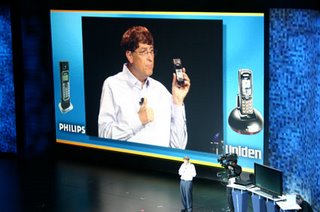Dopey DOPA Language Passes House

By a really big margin (something like 400 to 15!), the US House of Representatives passed the Delete Online Predators Act today (DOPA), which has basically just deleted Web 2.0 from every school and library in America.
The act, not content with going after online predators, instead bans access to ANY community site, collaborative space, or peer-mediated/edited/commented site on the internets. Wikipedia? Gone (OK, some may cheer about that one). Digg? Gone. Naturally the MySpace and Friendster and Facebook and Xanga sites are going down. But so too are del.ici.ous, Flickr, Picasa, Yahoo!, MSN, and any other site that actually accepts incoming traffic. Blogger, Blogspot, and the others? History. Your class blog, where you post your podcasts or whatever? Unless it's on a school server behind your firewall, it's gone. Basically, if a user can put up content, the site is off limits.
This is a blatant example of over-reaction and hyperbolic hysteria. Now, rather than being able to teach our kids how to be safe on the internets, how to contribute, how to collaborate; we can't show them examples (good nor bad) of the power of interconnectivity. It's like closing down all roads and highways that aren't dead ends. To be crass, but 100% to-the-point: WTF?
If you're an activist of any kind; if you've EVER written to your representatives in government about anything, this would be a good time to do so again. Click the link, use the little drop-down menu in the top right, get to your Senator's page, and send an e-mail. The bill still has to pass the Senate, so there's a chance-- a slim, snowball's chance-- that the language can be fixed. Naturally no politician wants to look like he's soft on pedophilia in an election year, so odds are that nobody will do anything to stop this travesty. But maybe, just maybe, if we all get up our nerve and let them know, maybe they'll realize they've thrown the baby out with the bathwater on this one. Read the full post here ...


